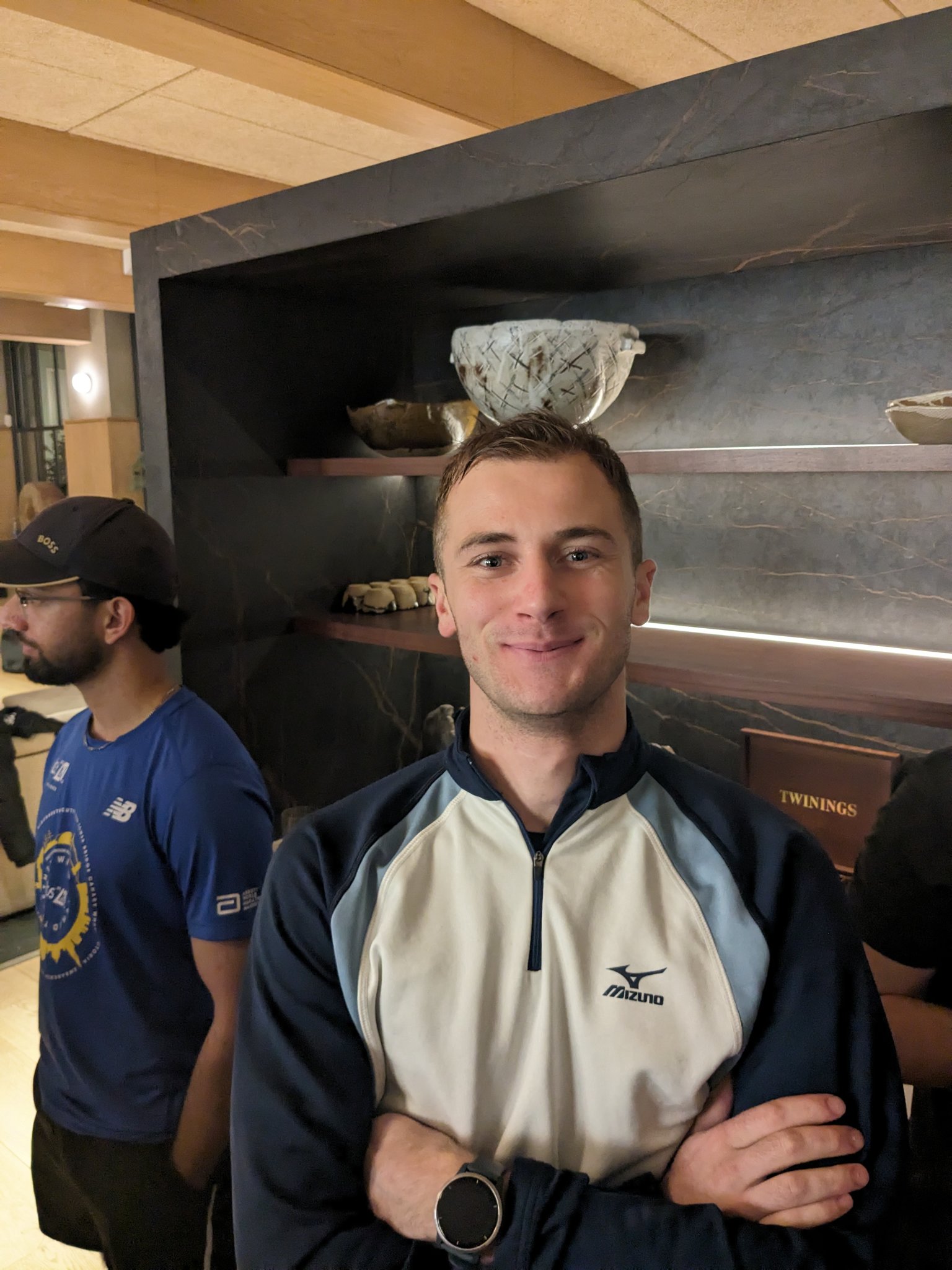
|
Runner Interview |
Can you give a brief introduction about yourself?
Hey I’m Bill, one of the investment team at Love Ventures; I spend most of my time meeting and trying to help super ambitious early stage tech founders grow their startups. Having run music events whilst at Bristol and knocked doors in the rain for Freddie’s Flowers, I thought I’d spend a few years at Barclays learning the ropes in the real world, and got sucked into VC from there. We’re a pretty new fund on the scene, and I joined alongside my colleague Alice a couple of years ago, though I just beat her to the first employee tag by a week!
How did you get started in the field of investment?
In literally my first week at Barclays I went to an event where Ben Davey was launching a new satellite organisation called Barclays Ventures that focussed on building transformational new revenue streams via investments and partnerships. With my uni thesis on disruptive innovation still ringing in my ears I was hooked, so I set my sights on joining that division, and have never got bored at work since!
What industries or sectors do you typically focus on for investment?
We focus on seed-stage FinTech, Future of Work and ConsumerTech in the UK. We’ve leaned hardest into payments, workflow automation, productivity and marketplaces to date but we’re interested in anything that is fundamentally changing the way we spend our time and money.
What's your investment philosophy?
We try to find founders who see the world very differently and will stop at nothing to realise this massive vision, but importantly who can also switch modes to be ruthlessly focussed on what they need to do in the here and now to make it a reality. For me personally, I want to see founders building something truly meaningful that we can look back on in 5, 10, 15 years time and say that it’s made the world a better place in some small, or big, way.
Have you ever made an investment or formed a partnership through a networking event like Seed Run?
We actually run VC padel events ourselves. The great thing about sports meetups like that and Seed Run is that everyone comes off the court, or running track, flowing with endorphins which really supercharges the connections people make. We actually made an investment into an awesome company called Wayhome following an introduction from a guest at our first ever padel event.
What trends in the startup world are you most excited about?
Tiny super-charged teams doing massive amounts with very limited resources given increasingly powerful AI tooling. It’s started with dev teams but is going more broadly so with a team of 10x’d humans I’m excited to see what these next generation of teams will come out with, including the startups building this AI-tooling, and fundamentally how this new-found productivity impacts how startups go about raising venture money.
Can you walk us through your due diligence process?
We have a four step process. We have a first meeting with one of the investment team where Alice and I figure out if there’s a good fit with the fund both in terms of stage and alignment in how we both see the world. From there we go to a partner meeting to get a feel for how we would work together and the challenges they are facing. Our last stage before IC is an advisor meeting with our IC members, 3 out of 4 of which are exited advisors. In parallel we are talking to potential customers, getting references and going through the data room to build a rich picture together before we go to a vote.
What’s a deal-breaker for you when evaluating a startup?
If we feel a founder hasn’t been fully open and honest with us. This lack of transparency doesn’t bode well for a healthy working relationship when we’re on the other side of the table working with them.
Can you share an example of an investment that exceeded your expectations? What made it work?
Last summer we backed a company called Konfir who is on a mission to become the de facto way to prove employment or income in the UK. It was such early days when we got involved, and seems like a really niche space, but the uptake has been really strong. I think because the founder Chris, who previously exited an HR Tech business, understood the problems his customers were facing so well, aka the background screening companies and recruiters they sell to, that he could be so laser focused building to their requirements from day one.
Fred Wilson has cereal boxes in his board room to remind him of the time they passed on the airbnb founders, and that the people are more important than the current iteration of an idea. What mistakes have you made?
Funnily enough I met the Ben from Runna, who I ran with tonight, really early on in their journey. They’d only just launched the app which was pretty limited and buggy at the time, but the main thing was that we really underestimated just how many people care that much about their running. They have been smashing it since so it’s great to see the positive impact they are having on people’s lives.
What advice would you give to startups looking to attract investment?
Focus your time on going after the right fit investor for you that gets the problem you’re tackling, rather than running after every investor under the sun. Instead of getting demoralised but all the rejections, use your energy to pinpoint who is in your world that could be a great partner for the ride. If raising money isn’t working out, you might just find that you’re talking to the wrong people. And if that doesn’t work, then take matters into your own hands; investment isn’t for everyone and there’s heaps of amazing businesses that have done it without.
How can we improve Seed Run?
It’s my first one so I’m a rookie but the one thing is that I saw some people running on their own so maybe you could find a way to unite people of similar speeds in groups so people don’t get left out. All in all though, have loved it!
Sign in To ask a question


